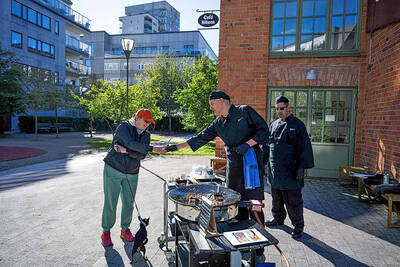As banks gambled on the risky mortgages that helped create the worst financial crisis in generations, the US government handed out millions of dollars in bonuses to regulators at agencies that missed or ignored warning signs that the system was on the verge of a meltdown.
The bonuses, detailed in payroll data, are the latest evidence of the government’s false sense of security during the go-go days of the financial boom. Just as bank executives got bonuses despite taking on dangerous amounts of risk, regulators got taxpayer-funded bonuses despite missing or ignoring signs that the system was on the verge of a meltdown.
The bonuses, released in response to a Freedom of Information Act request, were part of a reward program little known outside the government. Some government regulators got tens of thousands of dollars in perks, boosting their salaries by almost 25 percent. Often, though, rewards amounted to just a few hundred dollars for employees who came up with good ideas.
During the 2003 to 2006 boom, the three agencies that supervise most US banks — the Federal Deposit Insurance Corp, the Office of Thrift Supervision (OTS) and the Office of the Comptroller of the Currency — gave out at least US$19 million in bonuses, records show.
Nearly all that money was spent recognizing “superior” performance. The largest share, more than US$8.4 million, went to financial examiners, those employees and managers who scrutinize internal bank documents and sound the first alarms. Analysts, auditors, economists and criminal investigators also got awards.
After the meltdown, the government’s internal investigators surveyed the wreckage of nearly 200 failed banks and repeatedly found that those regulators had not done enough.
“OTS did not react in a timely and forceful manner to certain repeated indications of problems,” the Treasury Department’s inspector-general said following the US$2.5 billion collapse of NetBank, the first major bank failure of the economic crisis.

READINESS: According to a survey of 2,000 people, 86 percent of Swedes believe the country is worth defending in the event of a military attack Swedes are stocking up on food items in case of war, as more conflict in Europe no longer feels like a distant possibility, and authorities encourage measures to boost readiness. At a civil preparedness fair in southwest Stockholm, 71-year-old Sirkka Petrykowska said that she is taking the prospect of hostilities seriously and preparing as much as she can. “I have bought a camping stove. I have taken a course on preservation in an old-fashioned way, where you can preserve vegetables, meat and fruit that lasts for 30 years without a refrigerator,” Petrykowska said. “I’ve set aside blankets for warmth, I

FRUSTRATIONS: One in seven youths in China and Indonesia are unemployed, and many in the region are stuck in low-productivity jobs, the World Bank said Young people across Asia are struggling to find good jobs, with many stuck in low-productivity work that the World Bank said could strain social stability as frustrations fuel a global wave of youth-led protests. The bank highlighted a persistent gap between younger and more experienced workers across several Asian economies in a regional economic update released yesterday, noting that one in seven young people in China and Indonesia are unemployed. The share of people now vulnerable to falling into poverty is now larger than the middle class in most countries, it said. “The employment rate is generally high, but the young struggle to

ENERGY SHIFT: A report by Ember suggests it is possible for the world to wean off polluting sources of power, such as coal and gas, even as demand for electricity surges Worldwide solar and wind power generation has outpaced electricity demand this year, and for the first time on record, renewable energies combined generated more power than coal, a new analysis said. Global solar generation grew by a record 31 percent in the first half of the year, while wind generation grew 7.7 percent, according to the report by the energy think tank Ember, which was released after midnight yesterday. Solar and wind generation combined grew by more than 400 terawatt hours, which was more than the increase in overall global demand during the same period, it said. The findings suggest it is

‘ARMED CONFLICT’: At least 21 people have died in such US attacks, while experts say the summary killings are illegal even if they target confirmed narcotics traffickers US forces on Friday carried out a strike on an alleged drug-smuggling boat off the coast of Venezuela, killing four people, US Secretary of Defense Pete Hegseth said. The latest strike, which Hegseth announced in a post on X, brings the number of such US attacks to at least four, leaving at least 21 people dead. An accompanying video shared by Hegseth showed a boat speeding across the waves before being engulfed in smoke and flames. “Four male narco-terrorists aboard the vessel were killed,” the Pentagon chief wrote. He said the strike “was conducted in international waters just off the